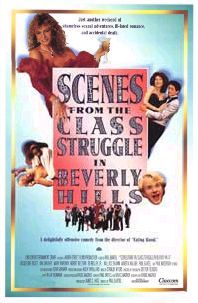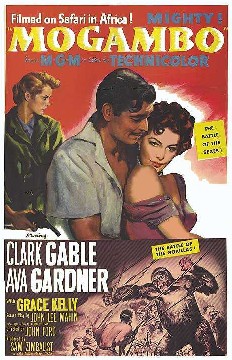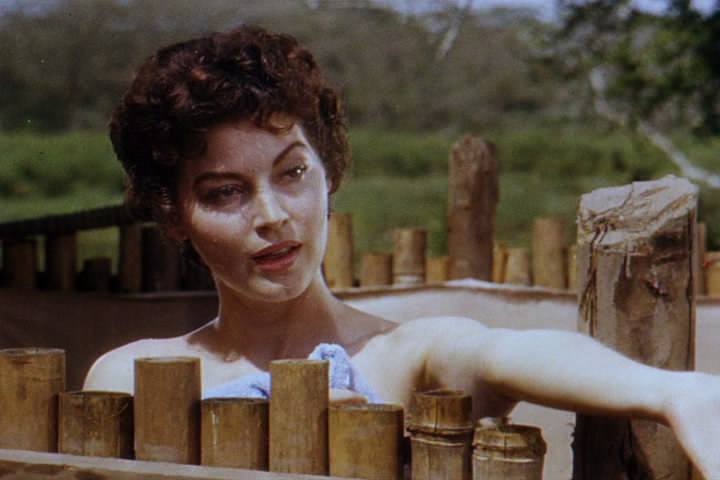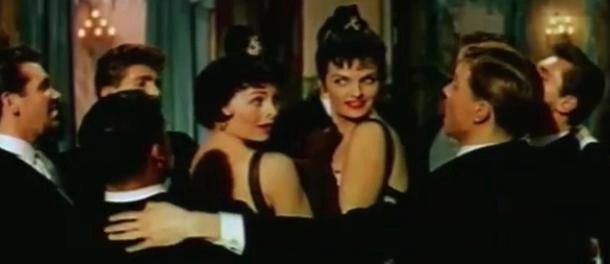I am often chastised for not having seen certain films before I tackle either their remake or the most recent entry in a certain franchise. It should therefore be no surprise that I have, as of this writing, never seen the 1994 version of The Crow. With that, I enter the remake thirty years in the making with blank eyes. I cannot compare this The Crow to the original. I can say that, independent of that original, this The Crow is a dull, bleak affair despite its lead's best efforts.
Troubled recovering addict Eric (Bill Skarsgard) is at a recovery center that looks like a prison. Into this place comes Shelly (FKA Twigs). She is locked in due to the police having found drugs in her bag when she was fleeing a potential killer. Shelly, a talented pianist, was videotaped with her bestie Zadie (Isabella Wei) involved in something dark and dangerous. This prison-cum-recovery center is probably the best place for Shelly, at least initially.
Shelly and Eric fall quickly in love, but now she has been tracked down by Marion (Laura Birn), someone who works for the evil Vincent Roeg (Danny Huston). We discover that Roeg has lived for centuries, having made a literal deal with the devil. In exchange for sending innocent souls to Hell, Roeg gets an extended life. All this matters little to Eric and to a lesser extent to Shelly. Having escaped from their confinement, Shelly and Eric embark on a passionate romance and in making music.
That blissful time is cut short when they are found and killed. That is, it appears that they are killed, though while Shelly is slipping into the lower depths, Eric is caught in a netherworld. As his love was pure, the figure Kronos (Sami Bouajila) says that he can float between worlds, feeling physical pain but not dying. He now has a chance to set things right and bring Shelly back if he eliminates Roeg and his minions.
Eric begins his task but when he sees the video, which is of a possessed Shelly killing someone, he wavers in his belief in her. That is enough to send him back to the netherworld and now Shelly is condemned to be separated from Eric forever. Eric, however, will not let Shelly go and offers to take her place in Hell in exchange for her being restored to life. Kronos agrees but he must go back and complete his mission. It is a bloody fight back to bring Shelly to life and Roeg to justice.
Since I have yet to see the original The Crow, I am not in a position to know how close or far this remake strayed from it or from the original comic books. However, I did overhear a group of women, some of whom had seen the 1994 film. They said that apart from the love story, everything in this The Crow was different. Moreover, they all commented on how violent it was.
On that point, I agree: The Crow is a surprisingly graphic film when it comes to violence. The final battle at the opera house where Eric, now in goth makeup, eliminates the various bodyguards is quite a bloody affair. I figure a samurai sword can decapitate someone. I did not figure it could sever a jaw in half. The Crow is understandably violent. However, I think at times it might have been better overall if director Rupert Sanders had opted to pull back and leave things to the imagination versus showing people stabbing themselves.
It is interesting that we do not see much of Shelly killing someone but do see more of Zadie's end. For all the violence in The Crow, it does not leave a major impact apart from slight disgust. What is meant as a shocking and dramatic moment when Eric crashes the end of the opera with severed heads is shot in a way that both draws attention to itself but leaves you cold. Moreover, there is something almost rote about the killings. There is no sense of justice or shock, just a sense that it is something to go through.
The Crow is a dark film in a literal sense. There are endless scenes that are so opaque that Gotham City looks like the Hundred Acre Woods by comparison. I understand that it is meant to show the oppressed, despairing world it inhabits. It just ends up making things hard to see.
One, perhaps grudgingly, can give Bill Skarsgard some credit for doing his best with his role. He does well as the traumatized Eric when he is locked up. He also puts in an effort when showing his seemingly intense love for Shelly and in his final transformation as the Crow. Bless Skarsgard for trying, which is more than can be said for FKA Twigs. I am not familiar with her musical career, and the only film Twigs has been in that I have seen is Honey Boy. It is a sign of how bad she was there that I don't think I even mentioned her in my Honey Boy review.
Now, I can make amends for that oversight by saying that FKA Twigs, based on The Crow, has no business being in a movie as an actress and should be kept away from the screens as a service to humanity. She was absolutely abysmal in The Crow. Blank, emotionless, with a look of almost disinterest. Twigs should be a frontrunner for the Worst Actress Razzie, as her appearance in The Crow is a sheer embarrassment for all concerned: cast, crew and audience.
Huston, under normal circumstances, would waste his skills in being something this awful. However, I figure that he was well paid, so I do not begrudge him that.
Zach Baylin's screenplay spent so much time attempting to foster this alleged love story that it becomes almost parody. It does not help that only Skarsgard even attempts to sell the love story.
Do I think that The Crow is better than Argylle? That is a tough one. Deadpool & Wolverine briefly managed to dethrone Argylle as the worst film of 2024, though in retrospect I would rather sit through Deadpool & Wolverine than Argylle. In a similar vein, I think I would rather endure The Crow than Argylle. I'll give this to The Crow: it made me think whether it was worse than Argylle, so that's something of an achievement I suppose.






























.jpg)




